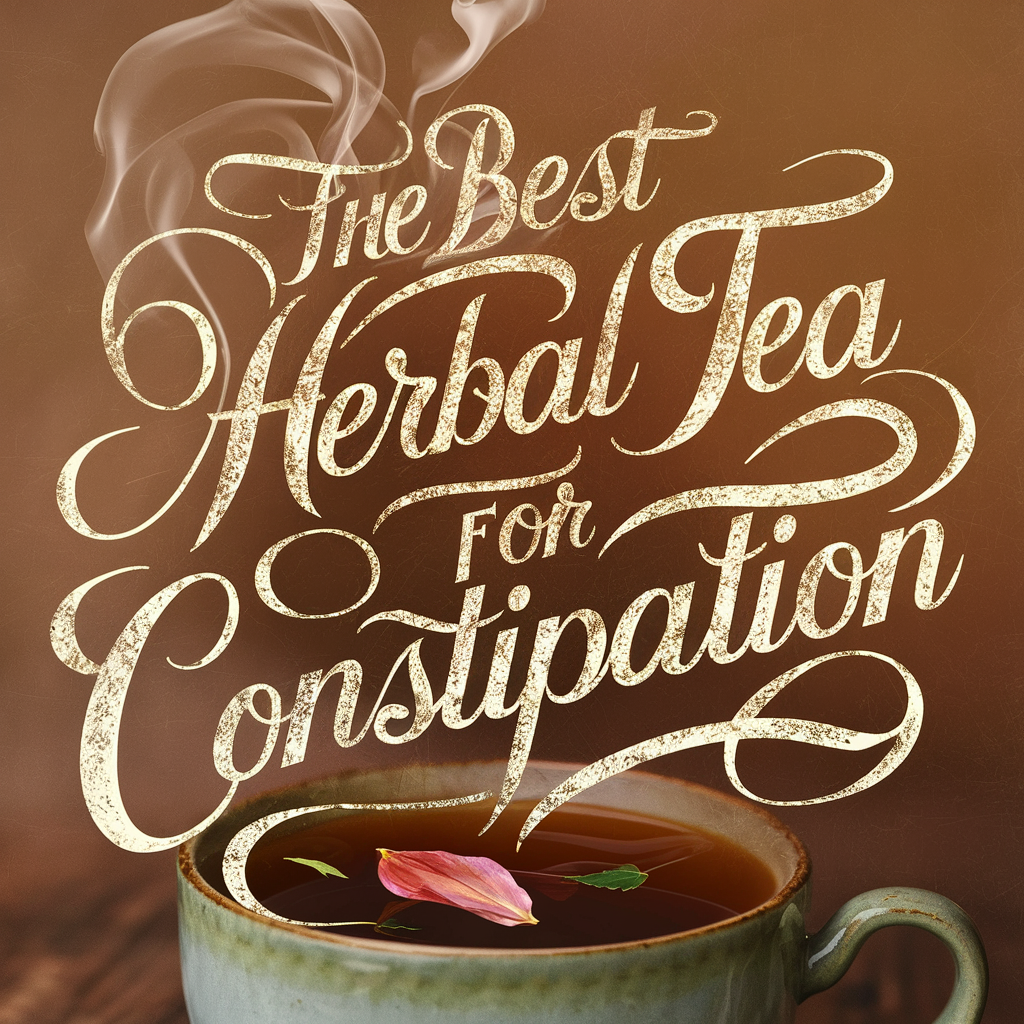
Understanding the Role of Herbal Tea in Relieving Constipation
I’ve always been drawn to natural remedies, especially when it comes to something as frustrating as constipation. Over the years, I’ve tried various solutions, but one that has consistently worked for me is herbal tea. There’s something comforting about brewing a warm cup of tea and knowing that it’s not just soothing, but also helping my body get back on track.
Herbal teas have been used for centuries to aid digestion and relieve constipation, and it’s not hard to see why they’ve stood the test of time. Unlike harsher laxatives, herbal teas offer a gentler approach, using natural ingredients to stimulate bowel movements and ease digestive discomfort. Whether you’re dealing with occasional constipation or looking for a regular way to keep things moving smoothly, herbal tea can be a simple and effective solution.
In this article, I’ll dive into how herbal teas work to relieve constipation, explore some of the best options out there, and share tips on how to choose and use them effectively. If you’ve ever wondered if a cup of tea could really make a difference in your digestive health, you’re in the right place. Let’s explore the world of herbal teas for constipation relief together.
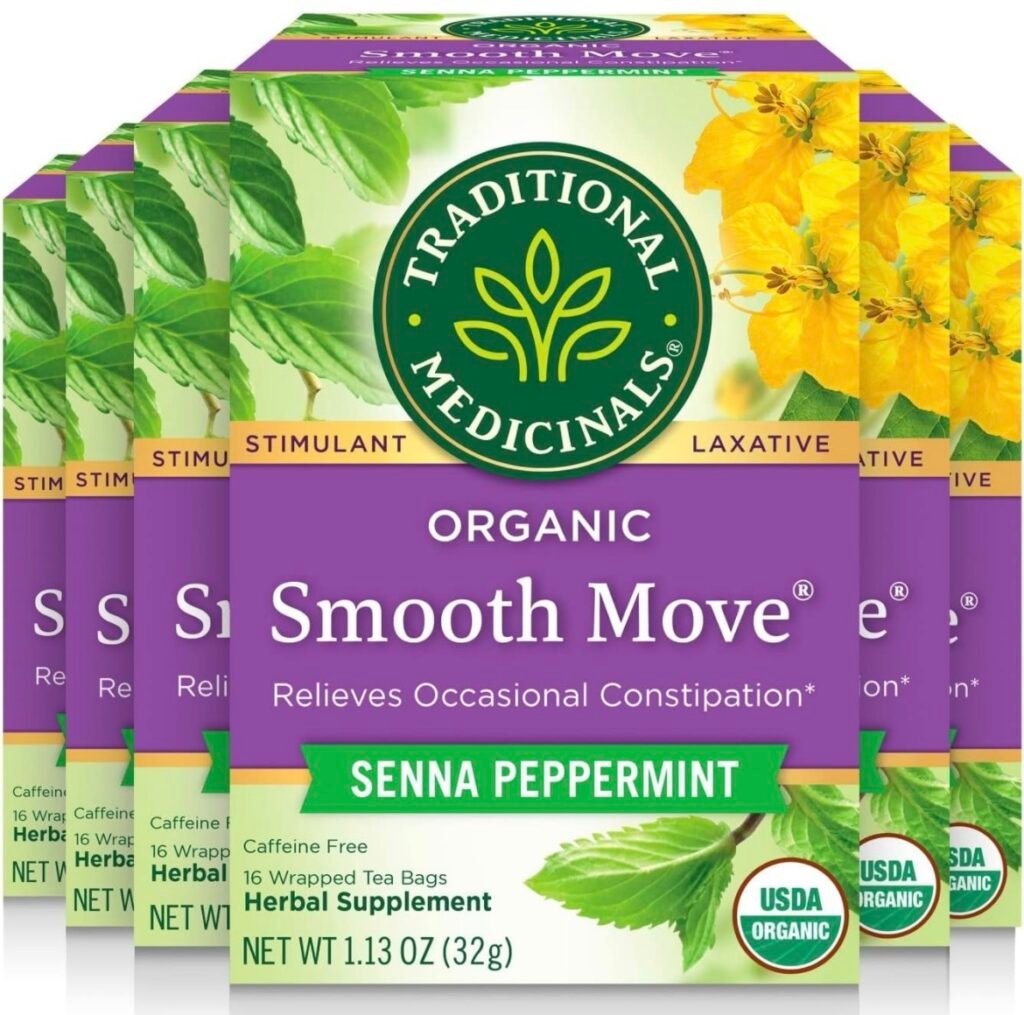
How Herbal Tea Helps Relieve Constipation
When I first started exploring herbal teas for constipation, I was curious about how something as simple as tea could actually make a difference. It turns out that the answer lies in the natural ingredients these teas contain. Many herbal teas are packed with plant-based compounds that gently stimulate the digestive system, helping to get things moving without the harsh effects of over-the-counter laxatives.
One of the key ingredients you’ll find in many of these teas is senna, a natural herb known for its potent laxative properties. Senna works by stimulating the muscles in the intestines, encouraging bowel movements. It’s been a go-to remedy for centuries and is still one of the most effective natural options available. I’ve found that senna-based teas, like Traditional Medicinals Organic Smooth Move Peppermint Tea, can be incredibly effective when I need a little extra help getting things moving.
Another powerful herb is peppermint, which not only soothes the digestive tract but also helps relax the muscles in the gut, making it easier for stool to pass. Peppermint tea is a great option if you’re looking for something that’s gentle yet effective, especially if you experience bloating or discomfort along with constipation.
Ginger is another favorite of mine. Known for its warming properties, ginger helps to stimulate digestion and can be particularly useful if your constipation is linked to sluggish digestion or stomach discomfort. It’s a great addition to any herbal tea blend, providing both flavor and function.
What I’ve come to appreciate about herbal teas is that they don’t just act as laxatives; they support overall digestive health. Many of these teas help with hydration, which is crucial for softening stool and easing its passage. Drinking herbal tea regularly can become a soothing routine that not only helps with constipation but also promotes general well-being.

Sometimes, constipation can cause discomfort in areas you wouldn’t expect, like the lower back. The build-up of stool in the intestines can create pressure that radiates to your back, causing a dull ache that’s hard to ignore. If you’re dealing with this type of discomfort, it might be worth exploring more about how constipation can lead to back pain by reading Where Is Constipation Pain Felt in the Back?.
Understanding how these herbs work to relieve constipation has helped me make more informed choices about the teas I drink. In the next section, I’ll share some of the best herbal teas for constipation and why they’re worth trying.
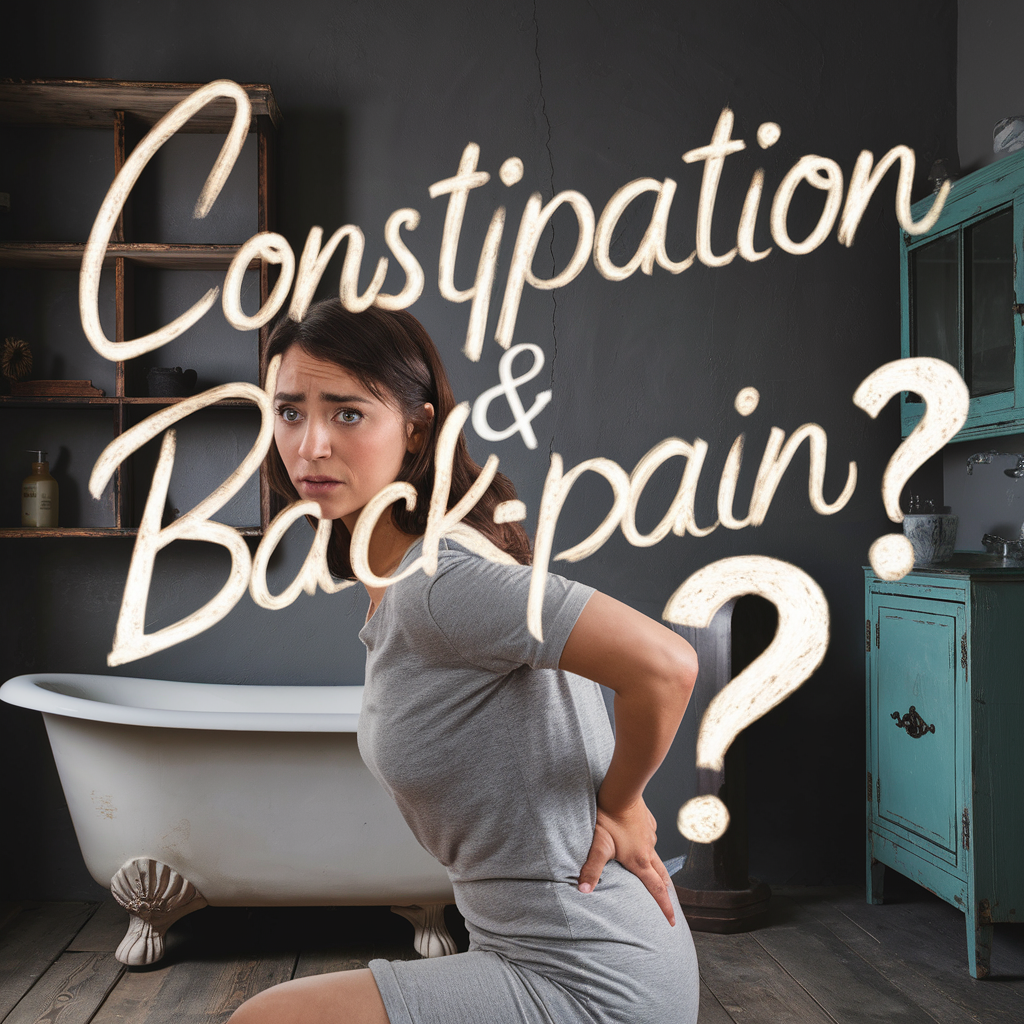
Best Herbal Teas for Constipation
When it comes to choosing the best herbal tea for constipation, there are a few standouts that have proven to be both effective and easy to incorporate into your daily routine. Here are some of my top picks:
1. Traditional Medicinals Organic Smooth Move Peppermint Tea
- Key Ingredient: Senna
- Why It Works: This tea combines the powerful laxative effects of senna with the soothing properties of peppermint. Senna is known for its ability to stimulate bowel movements by encouraging the muscles in the intestines to contract. Peppermint helps reduce any cramping or discomfort that might come with it.
- When to Use: I find it particularly effective to drink this tea in the evening. By the next morning, it usually helps me have a smooth and regular bowel movement.
- Where to Get It: You can check it out here.
2. Pink Stork Organic Constipation Tea
- Key Ingredients: Cinnamon and Mint
- Why It Works: Designed specifically for pregnant women, this tea is gentle yet effective. Cinnamon helps to warm the digestive system and encourage bowel movements, while mint soothes the digestive tract, making this a great option if you’re looking for something that’s easy on the stomach.
- When to Use: This tea is perfect for anyone who needs a mild, everyday option to keep constipation at bay, especially during pregnancy or postpartum.
- Where to Get It: Available here.
3. Other Effective Herbal Teas
- Ginger Tea: Known for its ability to stimulate digestion, ginger tea can help ease constipation, especially if you’re also dealing with nausea or bloating.
- Dandelion Tea: Acts as a mild laxative and helps detoxify the liver, making it another great option for regular use.
- Chamomile Tea: While more commonly known for its calming effects, chamomile also helps relax the digestive muscles, which can support bowel movements.
These teas offer a range of options depending on your needs, whether you’re looking for something strong and effective or gentle enough for daily use. In the next section, I’ll talk about how to choose the best laxative herbal tea for your specific situation.

How to Choose the Best Laxative Herbal Tea
Choosing the right herbal tea for constipation can make a big difference in how effectively it works for you. Here’s what to consider when selecting the best option:
1. Look for Key Ingredients
- Senna: If you need something strong and fast-acting, look for teas with senna as the main ingredient. It’s one of the most potent natural laxatives available.
- Peppermint: For a gentler option that also helps with bloating, peppermint tea is a great choice.
- Ginger or Cinnamon: These are ideal if you’re looking for a warming effect that stimulates digestion without being too harsh.
2. Consider the Strength and Potency
- Mild vs. Strong: Some teas are designed for mild, daily use, while others are stronger and should only be used occasionally. If you need something for everyday maintenance, go for a milder blend. For more immediate relief, a stronger tea like Traditional Medicinals Organic Smooth Move Peppermint Tea might be more suitable.
- Brew Time: The longer you steep the tea, the stronger it will be. Pay attention to the recommended brew time on the package to avoid making the tea too strong, which could lead to cramping.
3. Think About Your Specific Needs
- Pregnancy or Postpartum: If you’re pregnant or have recently given birth, consider a tea specifically designed for your needs, like Pink Stork Organic Constipation Tea, which is gentle and safe for use during these times.
- Daily Use vs. Occasional Relief: Decide whether you need a tea for everyday use or just for occasional relief. This will help you choose a product that fits your lifestyle.
4. Read Labels and Reviews
- Check for Organic Certification: If you’re concerned about pesticides or additives, opt for organic teas.
- Look at Reviews: See what other users have to say about the tea. This can give you insight into how effective it is and whether it’s worth trying.
By keeping these factors in mind, you can select the best herbal tea to suit your needs and ensure that you’re getting a product that will effectively relieve constipation.
Next, I’ll share some tips on how to brew and use herbal tea to get the best results.
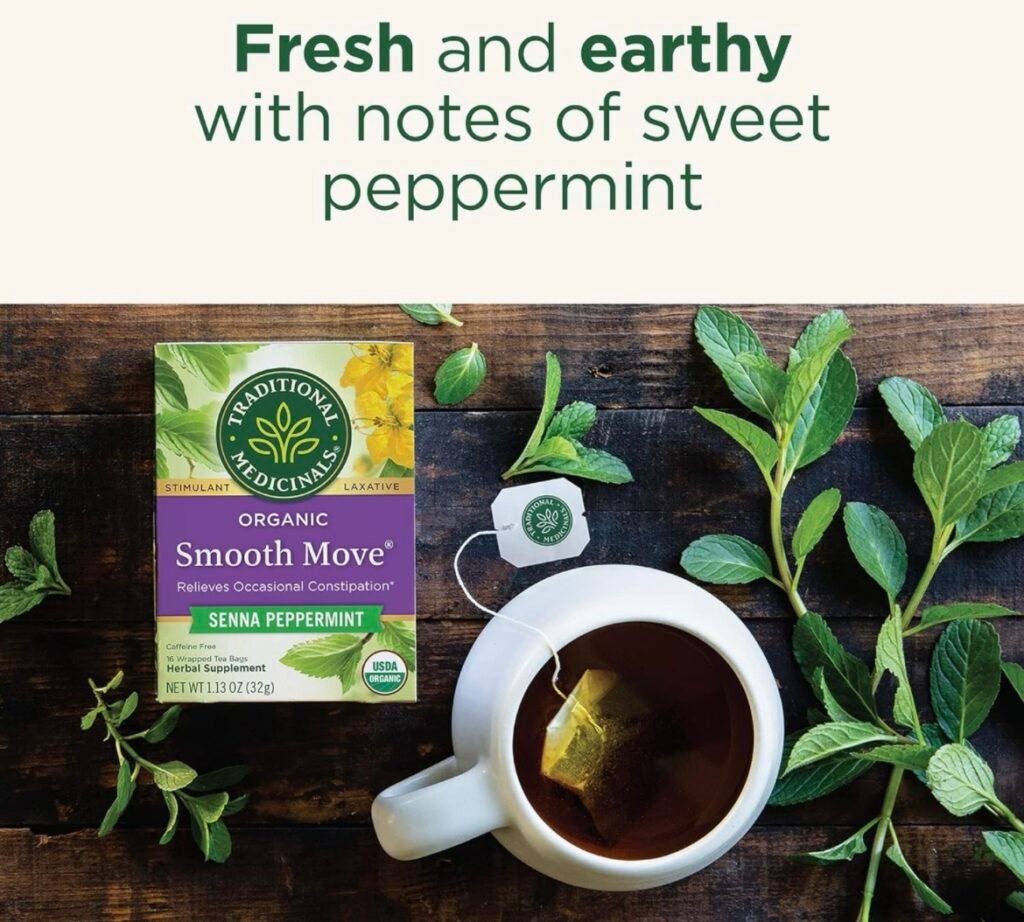
How to Use Herbal Tea for Constipation Relief
Once you’ve chosen the right herbal tea, the next step is knowing how to use it effectively to relieve constipation. Here are some tips that have worked well for me:
1. Brewing the Perfect Cup
- Follow the Instructions: Start by reading the instructions on the package. Some teas require longer steeping times to fully release their active ingredients.
- Use Hot, Not Boiling Water: To preserve the delicate herbs, use hot water (just below boiling) rather than boiling water, which can damage the beneficial compounds.
- Steep Time: Generally, steep the tea for 5-10 minutes, depending on the strength you need. If you’re using a tea with senna, you may want to start with a shorter steeping time to see how your body reacts.
2. When and How Often to Drink
- Evening Use: Many laxative teas, like Traditional Medicinals Organic Smooth Move Peppermint Tea, are best consumed in the evening. This gives the herbs time to work overnight, so you can expect results in the morning.
- Daily or Occasional Use: If you’re using a gentler tea, like Pink Stork Organic Constipation Tea, you might drink it daily as part of your routine. Stronger teas should be used less frequently to avoid dependence.
3. Pairing with Other Remedies
- Stay Hydrated: Drinking plenty of water is crucial when using herbal teas for constipation. Water helps soften the stool and aids the digestive process.
- Consider a Balanced Diet: Complement your tea with a diet rich in fiber from fruits, vegetables, and whole grains to enhance its effects.
- Hygiene Matters: Good bathroom habits are important when dealing with constipation. Using a bidet can help maintain cleanliness and comfort, especially if you’re experiencing hemorrhoids. For more on this, check out Best Bidets: Comfort and Cleanliness Redefined.
4. Monitor Your Body’s Response
- Adjust as Needed: Pay attention to how your body reacts to the tea. If you experience cramping or discomfort, you might need to reduce the steeping time or switch to a milder tea.
- Track Frequency: If you find yourself needing the tea more often, consider making lifestyle adjustments or consulting with a healthcare provider to address underlying issues.
Using herbal tea as part of your routine can be an effective and soothing way to relieve constipation. In the next section, I’ll discuss potential side effects and important considerations to keep in mind.

Potential Side Effects and Considerations
While herbal teas for constipation can be incredibly effective, it’s important to be aware of potential side effects and understand how to use them safely. Here are some key points to keep in mind:
1. Possible Side Effects
- Cramping and Discomfort: Strong laxative herbs like senna can sometimes cause cramping or abdominal discomfort, especially if the tea is steeped too long or consumed in large amounts.
- Diarrhea: If you’re not careful with the dosage, some herbal teas can lead to diarrhea. This is more likely with potent laxatives like senna.
- Dehydration: Frequent use of laxative teas can lead to dehydration, as they can cause increased bowel movements. Make sure to drink plenty of water to stay hydrated.
2. Who Should Be Cautious
- Pregnant Women: While certain teas, like Pink Stork Organic Constipation Tea, are formulated for pregnancy, not all herbal teas are safe for pregnant women. Always consult your healthcare provider before trying a new tea if you’re pregnant or breastfeeding.
- Chronic Constipation: If you’re experiencing chronic constipation, relying on herbal teas might not be the best solution. It’s important to address the underlying cause, which might require dietary changes, lifestyle adjustments, or medical treatment.
- Medical Conditions: Individuals with certain medical conditions, such as Crohn’s disease or irritable bowel syndrome (IBS), should consult with a doctor before using herbal laxatives, as these teas can sometimes exacerbate symptoms.
3. Frequency of Use
- Avoid Overuse: Herbal laxative teas should not be used daily over a long period of time, as this can lead to dependence. Your body might start relying on the tea to stimulate bowel movements, which can worsen constipation in the long run.
- Use Sparingly: For teas like Traditional Medicinals Organic Smooth Move Peppermint Tea, it’s best to use them occasionally, when you really need relief, rather than making them a regular part of your routine.
4. Consult a Healthcare Provider
- Persistent Symptoms: If constipation persists despite using herbal teas, it’s time to consult a healthcare provider. There might be an underlying issue that needs to be addressed.
- Combining Remedies: Before combining herbal teas with other treatments or medications, check with your doctor to avoid any potential interactions.
Understanding these considerations will help you use herbal teas safely and effectively. In the next section, I’ll talk about how you can combine herbal tea with lifestyle changes to achieve even better results.
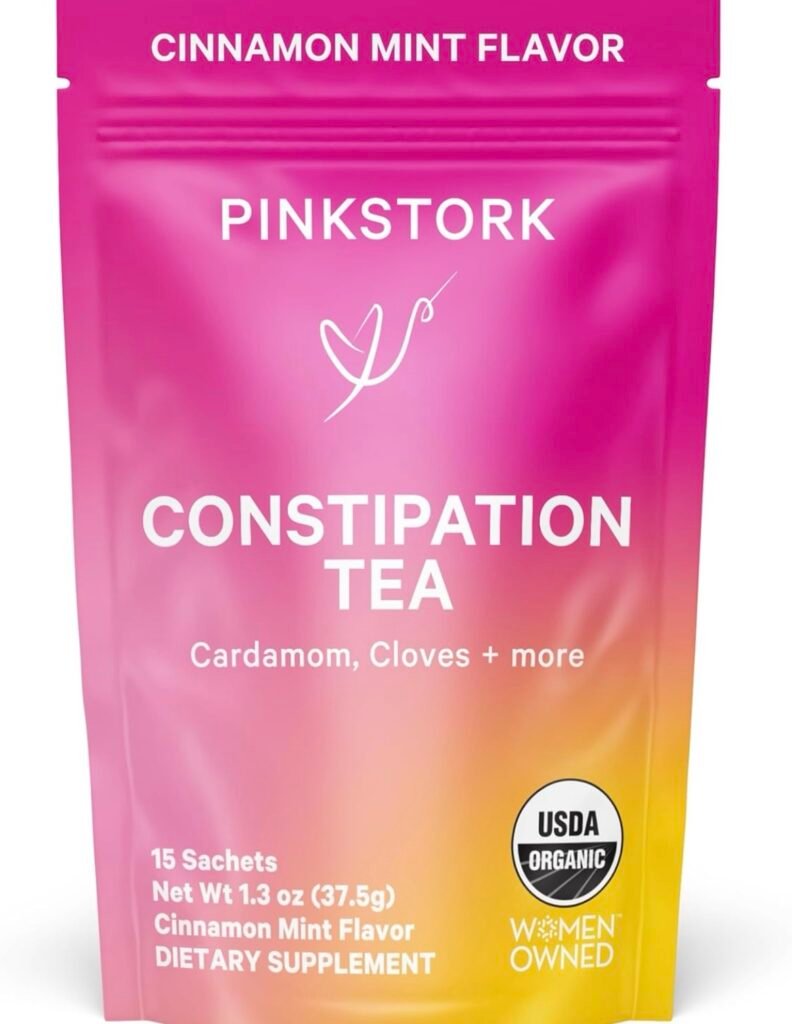
Combining Herbal Tea with Lifestyle Changes
While herbal tea can be a powerful tool for relieving constipation, it works best when combined with healthy lifestyle habits. Here are some tips on how to enhance the effectiveness of your tea with simple changes to your daily routine:
1. Stay Hydrated
- Drink Plenty of Water: Hydration is key to preventing and relieving constipation. Water helps to soften stool, making it easier to pass. Try to drink at least eight glasses of water a day, especially when using herbal teas, as they can have a diuretic effect.
- Pairing Tea with Water: Make it a habit to follow your cup of herbal tea with a glass of water to ensure you’re staying properly hydrated.
2. Improve Your Diet
- Increase Fiber Intake: Foods rich in fiber, such as fruits, vegetables, whole grains, and legumes, help promote regular bowel movements. Fiber adds bulk to your stool and makes it easier to pass.
- Eat Smaller, More Frequent Meals: Instead of three large meals, try eating smaller meals more frequently. This can help keep your digestive system active and prevent constipation.
- Avoid Constipation Triggers: Limit foods that are known to cause constipation, such as processed foods, red meat, and dairy products.
3. Get Moving
- Regular Exercise: Physical activity stimulates digestion and helps food move through your intestines more quickly. Even a daily walk can make a big difference in keeping constipation at bay.
- Yoga and Stretching: Certain yoga poses, like twists and forward bends, can help massage your digestive organs and encourage bowel movements.
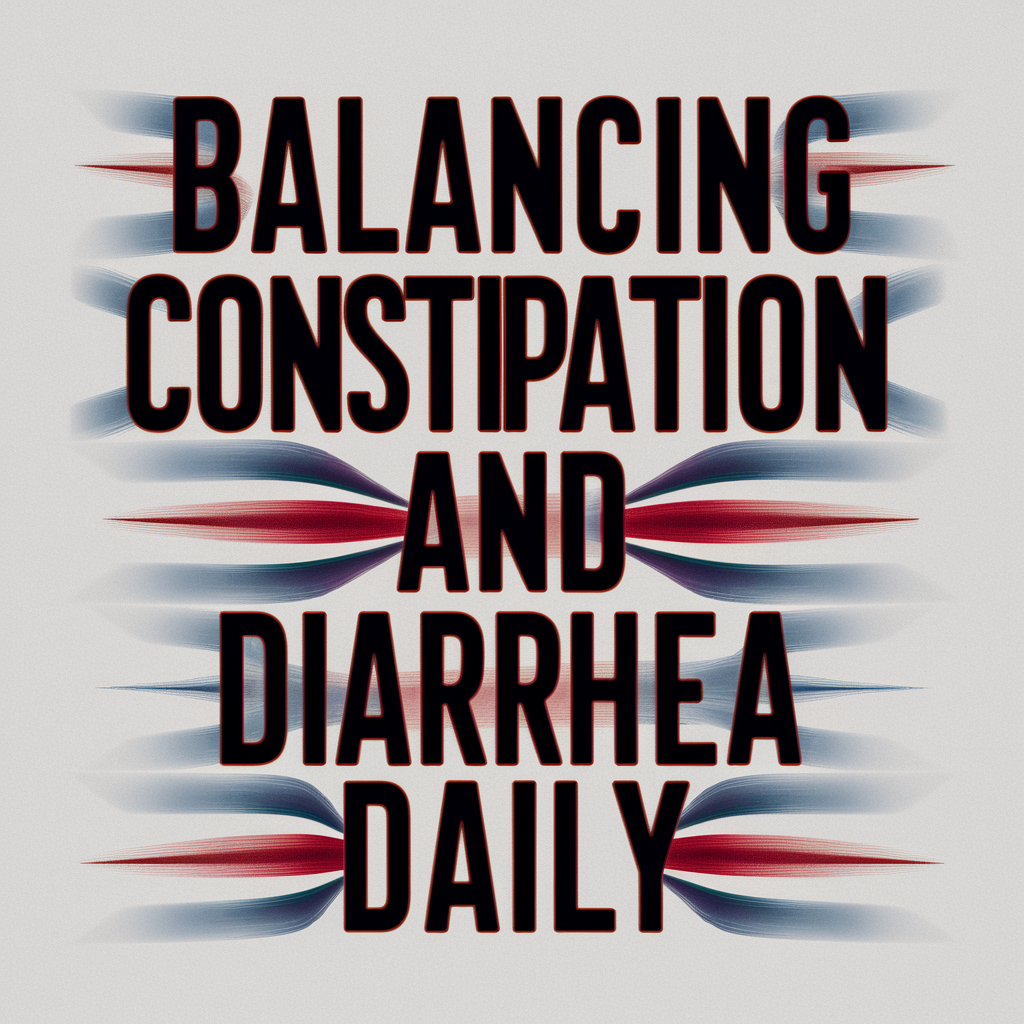
4. Practice Good Bathroom Habits
- Go When You Need To: Don’t ignore the urge to go to the bathroom. Holding it in can lead to constipation. Try to establish a regular time each day to use the bathroom.
- Use a Bidet for Hygiene: Maintaining cleanliness can be especially important if you’re dealing with hemorrhoids or other rectal issues due to constipation. A bidet can help ensure thorough cleansing and comfort. For more on the benefits, you can check out Best Bidets: Comfort and Cleanliness Redefined.
5. Manage Stress
- Relaxation Techniques: Stress can negatively impact your digestive system, leading to issues like constipation. Incorporate relaxation techniques such as deep breathing, meditation, or taking time for a relaxing cup of herbal tea.
- Create a Relaxing Environment: Make your bathroom experience more comfortable and less stressful. Sometimes, just creating a calm environment can help your body relax enough to go.
By combining herbal tea with these lifestyle changes, you can significantly improve your digestive health and reduce the likelihood of constipation. In the next section, I’ll wrap up with some final thoughts on using herbal tea for natural constipation relief.
As someone who had used a bidet for many years, and I suffer from IBS-M which means having diarrhea and constipation. Having a bidet can really help to get clean without making your butt near as sore. Check out our best bidet choices for different budgets!
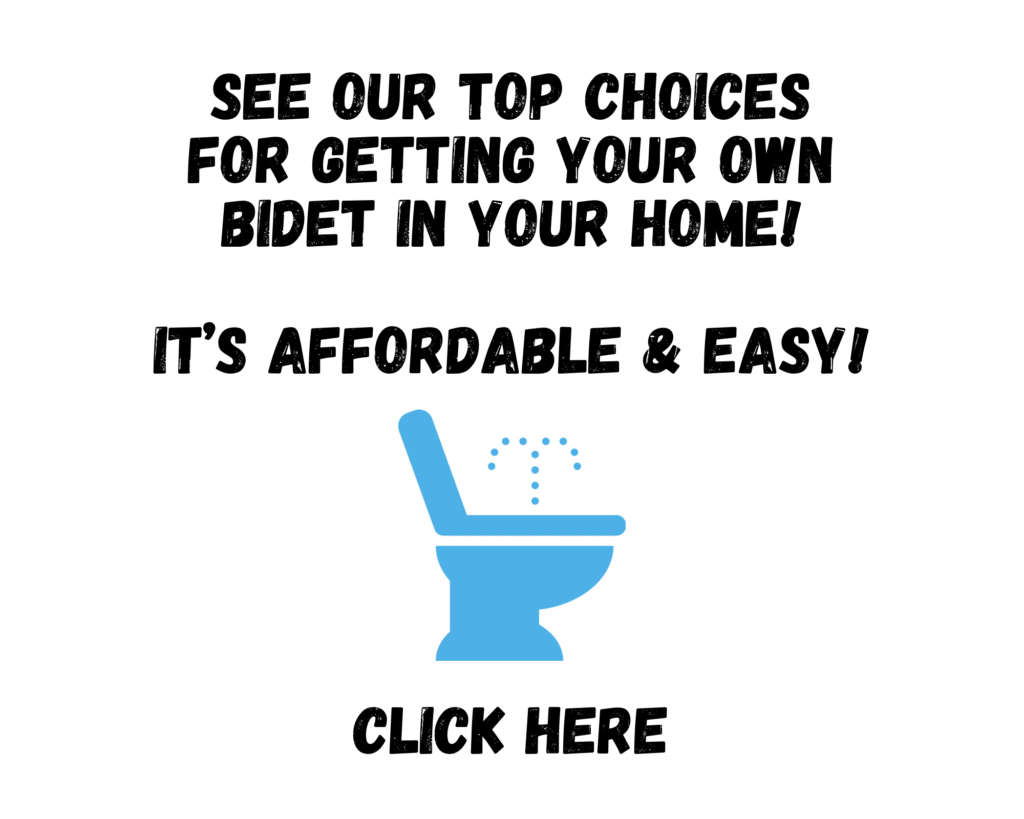
Embracing Herbal Tea for Natural Constipation Relief
Using herbal tea for constipation has been a game-changer for me, and it can be for you too. It’s a gentle, natural way to get your digestive system back on track without the harsh side effects that come with some over-the-counter laxatives. Whether you’re dealing with occasional constipation or looking for a regular way to support your digestive health, herbal tea offers a simple and effective solution.
From potent options like Traditional Medicinals Organic Smooth Move Peppermint Tea to gentler choices like Pink Stork Organic Constipation Tea, there’s a tea out there for everyone. The key is to find the one that works best for your body and to use it as part of a broader strategy that includes hydration, a fiber-rich diet, regular exercise, and good bathroom habits.
Remember, while herbal teas are a wonderful tool for relieving constipation, it’s important to listen to your body and seek medical advice if your symptoms persist or worsen. Sometimes, constipation can be a sign of a more serious issue that needs to be addressed by a healthcare professional.
So, why not brew yourself a cup of herbal tea, make a few lifestyle tweaks, and see how these small changes can lead to big improvements in your digestive health? Here’s to a healthier, more comfortable you—one cup at a time.
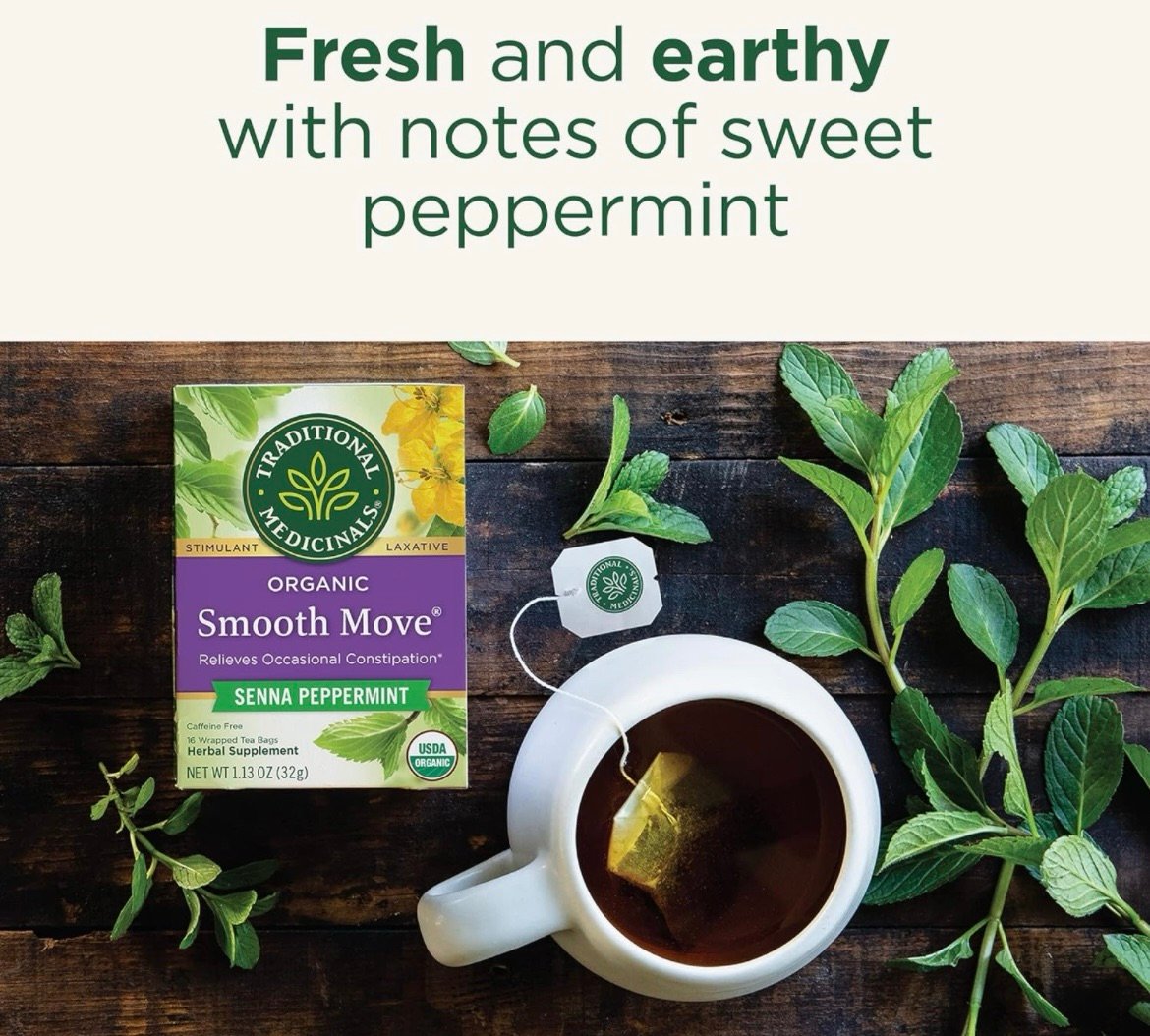
As an Amazon Associate we earn from qualifying purchases through some links in our articles.


